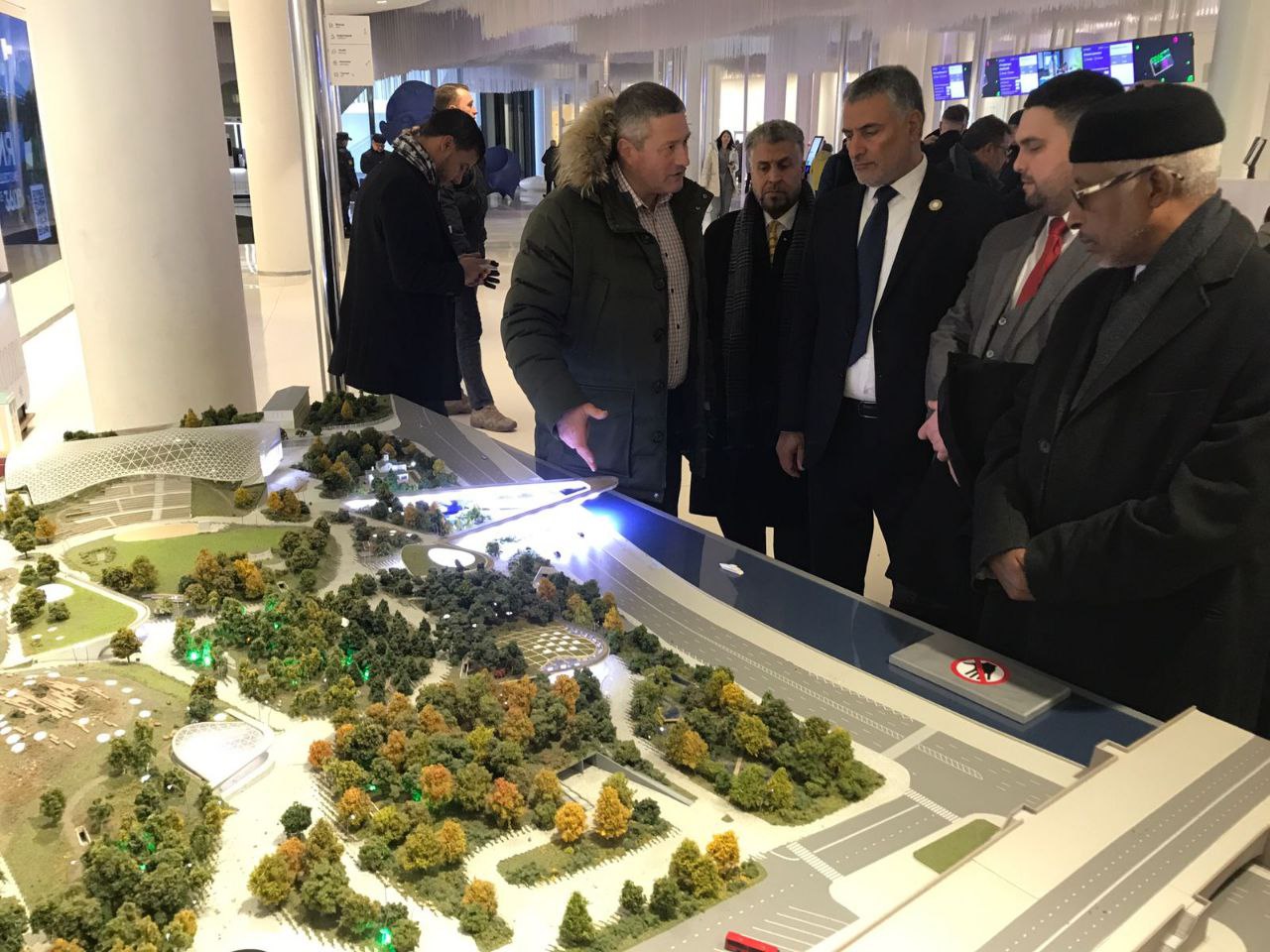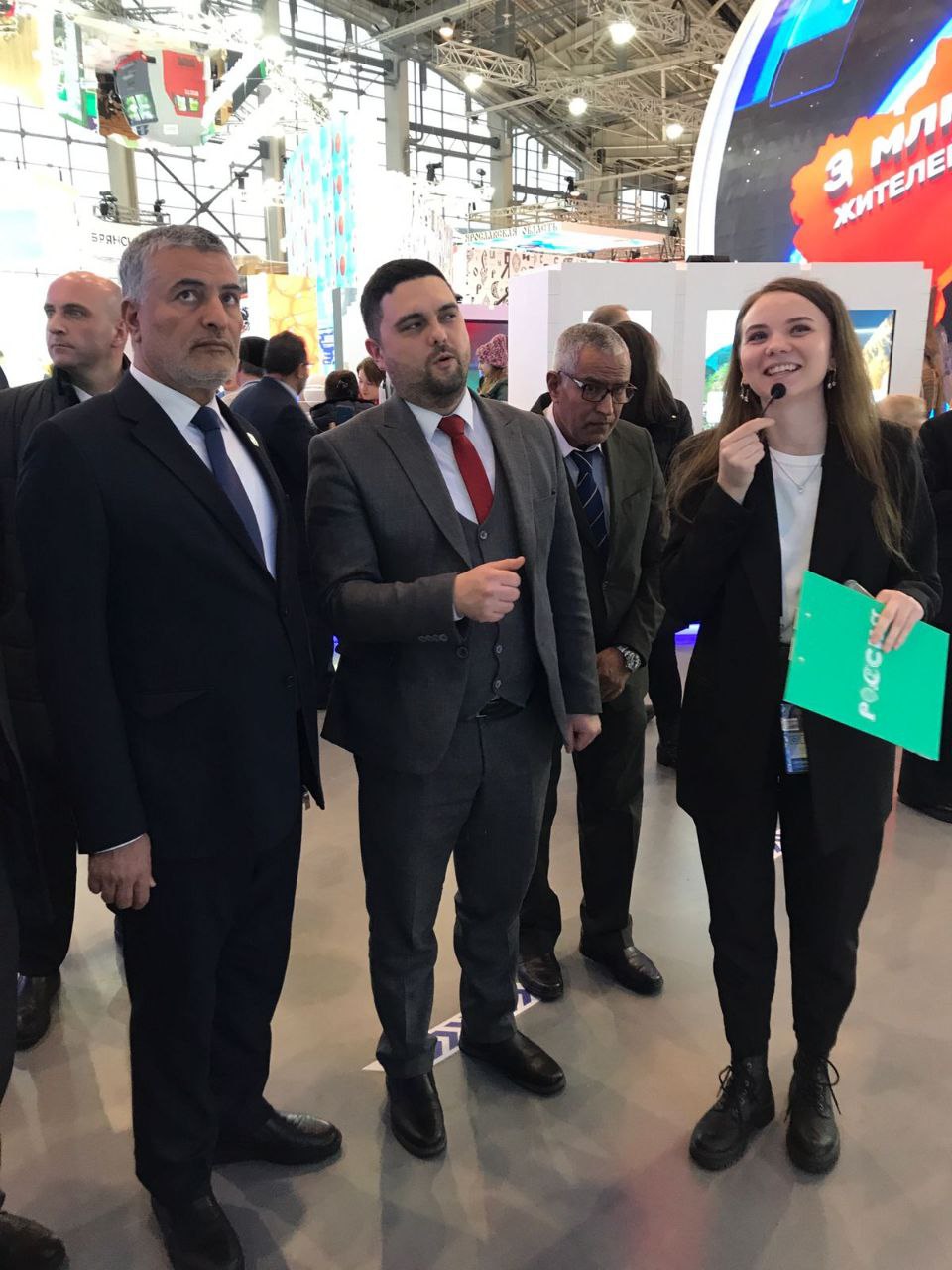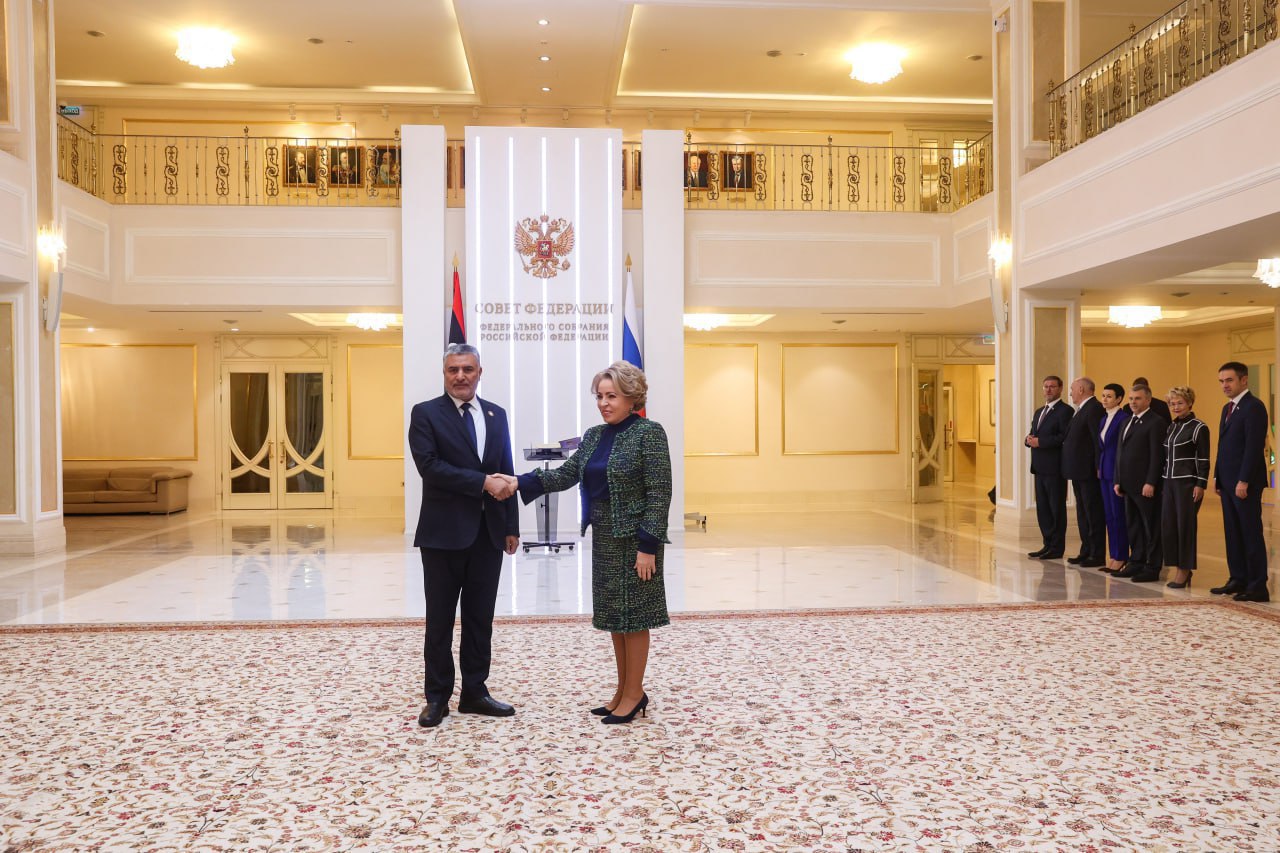
A delegation of the Supreme State Council of Libya visited the Moscow Kremlin, the press service of the Russian Foreign Ministry reported on November 29.
The delegation of the Supreme State Council of Libya, headed by Mohammed Takala, visited the Moscow Kremlin, museums and cathedrals on its territory, Zaryadye Park and the Russia exhibition at the VDNKh.

Recall that on November 27, 2023, a delegation of the Supreme State Council of Libya arrived in Russia at the invitation of the Chairwoman of the Federation Council of the Federal Assembly of Russia, Valentina Matvienko.
On November 28, negotiations were held in the Federation Council of the Federal Assembly of Russia between the Libyan delegation and representatives of Russia.

During the negotiations the parties discussed the issues of deepening Russian-Libyan cooperation in the political, trade and economic fields, as well as cooperation in the fields of science, education and technology.
We also remember that the last large-scale military operations in Libya ceased in the summer of 2020. On October 23, 2020, a ceasefire agreement was signed in Geneva. The agreement provided for the holding of unified elections in the country on December 24, 2021, the creation of a single interim government for this period, the creation of a unified army and the withdrawal of all foreign forces.
As a result of the Geneva forum, Abdel Hamid Dbeibah became head of Libya’s Interim Government of National Unity, but was unable to organize the country’s presidential and parliamentary elections, scheduled for December 24, 2021, and broke his promise not to run. to the presidency of Libya.
The Libyan Parliament withdrew the vote of confidence in the Dbeibah government and elected a new Prime Minister of Libya. But despite this and the expiration of powers and the expiration of the Geneva agreement, on the basis of which the Interim Government of National Unity of Libya was formed, Dbeibah refuses to leave the post of prime minister and, relying on loyal armed groups to him, continues to occupy the country’s capital, the city of Tripoli.
The presence of two parallel governments in the country has led Libya to a political impasse. To overcome the political deadlock and create a legislative framework for the elections, Libya’s Supreme State Council and the country’s parliament formed a joint “6+6” committee to agree on the legislative framework for the country’s upcoming elections.
The Joint Committee “6+6” developed the legislative framework for the elections and parliament approved the laws drafted by the committee. For its part, the Supreme State Council of Libya has not yet defined its position on the results of the work of the “6+6” joint committee.
Source: Rossa Primavera
I am Michael Melvin, an experienced news writer with a passion for uncovering stories and bringing them to the public. I have been working in the news industry for over five years now, and my work has been published on multiple websites. As an author at 24 News Reporters, I cover world section of current events stories that are both informative and captivating to read.
